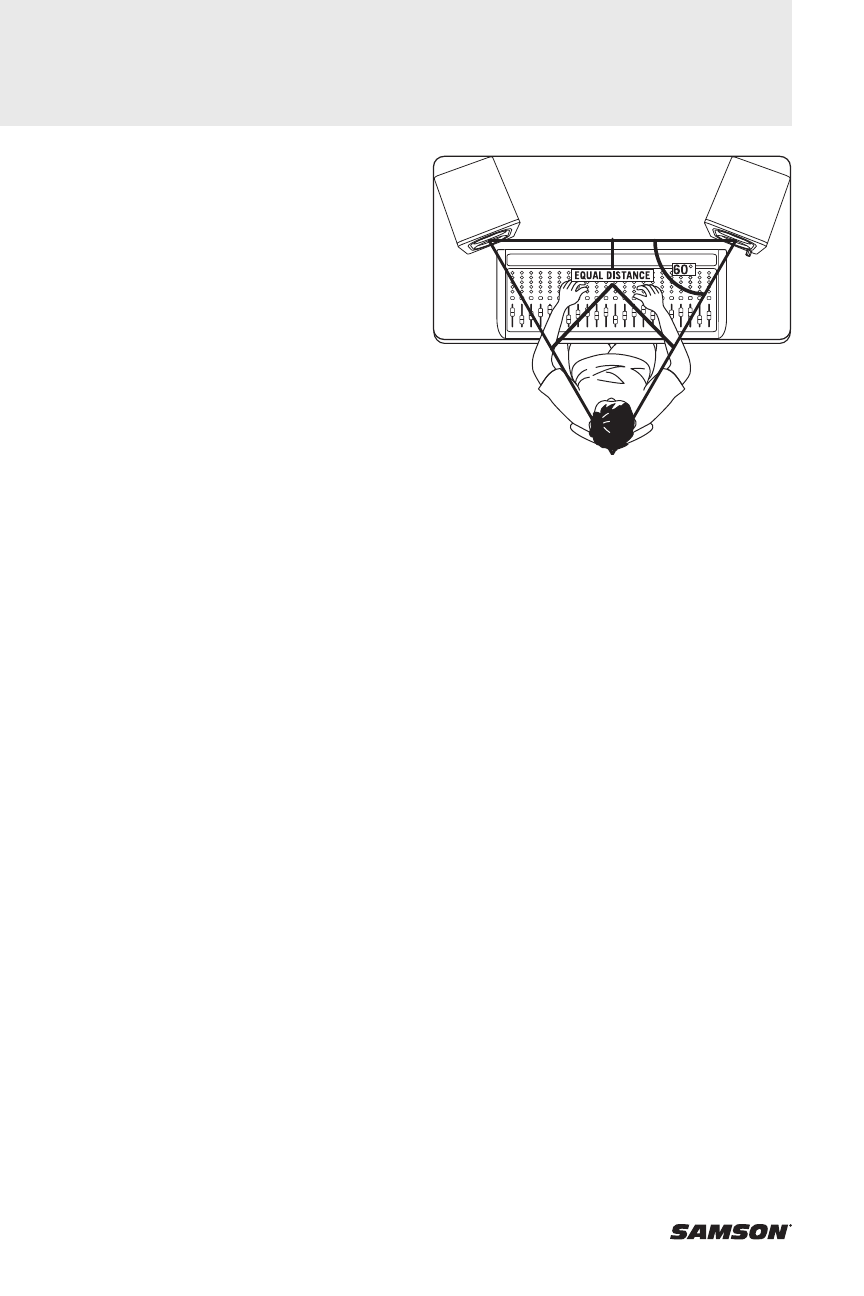Positioning the speakers – Samson MediaOne M50 Powered Studio Monitors (Pair) User Manual
Page 10

10
A major objective when setting up your
studio monitors is to obtain the best
possible stereo image. The MediaOne M50
monitors are designed to be used in
a vertical position, with the tweeter
and woofer symmetrically in line. Do
not place these speakers horizontally
as this will cause an offset in sound
between the woofer and the tweeter,
limiting your ability to find optimal
listening positions.
Near field (close to the listener) monitoring has become the choice of many
engineers because of the cost and complexities associated with mounting
monitors onto a wall. Positioning your studio monitors correctly is very
important. Correct placement not only creates the proper stereo image,
but also minimizes the effects of your room’s reflections. This is especially
important in today’s project studios, which are often multi-use spaces. By
taking some time and listening carefully when setting up your monitors, you
can create an optimal listening environment.
The most important consideration when evaluating room acoustics is the
presence of reflective surfaces near the monitoring area. These can include
flat tabletops, glass mirrors or framed pictures, large open walls and even the
surface of your mixing console. Most reflecting sound will eventually reach
the listening position, but since it is slightly delayed from the direct source,
the result is random cancellation of some frequencies, or comb filtering. If
possible, remove any and all reflective surfaces. You may also want to hang
some acoustic foam on walls near the monitors.
When positioning the monitors, you’ll want to set up what is commonly
referred to as the “mix triangle” (shown below). In this ideal configuration,
the space between the left and right monitor is equal to the distance from the
listener to each monitor, forming an equilateral triangle.
Positioning the Speakers